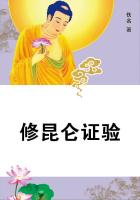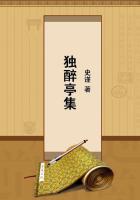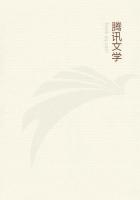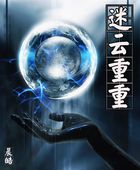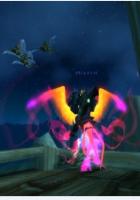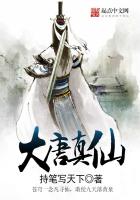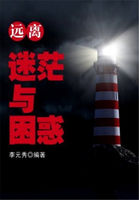Gerhardt knocked out his pipe and began to fill it again. "I went home to see my mother in May, of 1914. I wasn't here when the war broke out. The Conservatoire closed at once, so I arranged a concert tour in the States that winter, and did very well. That was before all the little Russians went over, and the field wasn't so crowded. I had a second season, and that went well. But I was getting more nervous all the time; I was only half there."
He smoked thoughtfully, sitting with folded arms, as if he were going over a succession of events or states of feeling. "When my number was drawn, I reported to see what I could do about getting out; I took a look at the other fellows who were trying to squirm, and chucked it. I've never been sorry. Not long afterward, my violin was smashed, and my career seemed to go along with it."
Claude asked him what he meant.
"While I was at Camp Dix, I had to play at one of the entertainments. My violin, a Stradivarius, was in a vault in New York. I didn't need it for that concert, any more than I need it at this minute; yet I went to town and brought it out. I was taking it up from the station in a military car, and a drunken taxi driver ran into us. I wasn't hurt, but the violin, lying across my knees, was smashed into a thousand pieces. I didn't know what it meant then; but since, I've seen so many beautiful old things smashed . . . I've become a fatalist."
Claude watched his brooding head against the grey flint rock.
"You ought to have kept out of the whole thing. Any army man would say so."
David's head went back against the boulder, and he threw one of the, chestnuts lightly into the air. "Oh, one violinist more or less doesn't matter! But who is ever going back to anything?
That's what I want to know!"
Claude felt guilty; as if David must have guessed what apostasy had been going on in his own mind this afternoon. "You don't believe we are going to get out of this war what we went in for, do you?" he asked suddenly.
"Absolutely not," the other replied with cool indifference.
"Then I certainly don't see what you're here for!"
"Because in 1917 I was twenty-four years old, and able to bear arms. The war was put up to our generation. I don't know what for; the sins of our fathers, probably. Certainly not to make the world safe for Democracy, or any rhetoric of that sort. When I was doing stretcher work, I had to tell myself over and over that nothing would come of it, but that it had to be. Sometimes, though, I think something must . . . . Nothing we expect, but something unforeseen." He paused and shut his eyes. "You remember in the old mythology tales how, when the sons of the gods were born, the mothers always died in agony? Maybe it's only Semele I'm thinking of. At any rate, I've sometimes wondered whether the young men of our time had to die to bring a new idea into the world . . . something Olympian. I'd like to know. I think I shall know. Since I've been over here this time, I've come to believe in immortality. Do you?"
Claude was confused by this quiet question. "I hardly know. I've never been able to make up my mind."
"Oh, don't bother about it! If it comes to you, it comes. You don't have to go after it. I arrived at it in quite the same way I used to get things in art,--knowing them and living on them before I understood them. Such ideas used to seem childish to me." Gerhardt sprang up. "Now, have I told you what you want to know about my case?" He looked down at Claude with a curious glimmer of amusement and affection. "I'm going to stretch my legs. It's four o'clock."
He disappeared among the red pine stems, where the sunlight made a rose-colored lake, as it used to do in the summer . . . as it would do in all the years to come, when they were not there to see it, Claude was thinking. He pulled his hat over his eyes and went to sleep.
The little girl on the edge of the beech wood left her sack and stole quietly down the hill. Sitting in the heather and drawing her feet up under her, she stayed still for a long time, and regarded with curiosity the relaxed, deep breathing body of the American soldier.
The next day was Claude's twenty-fifth birthday, and in honour of that event Papa Joubert produced a bottle of old Burgundy from his cellar, one of a few dozens he had laid in for great occasions when he was a young man.
During that week of idleness at Madame Joubert's, Claude often thought that the period of happy "youth," about which his old friend Mrs. Erlich used to talk, and which he had never experienced, was being made up to him now. He was having his youth in France. He knew that nothing like this would ever come again; the fields and woods would never again be laced over with this hazy enchantment. As he came up the village street in the purple evening, the smell of wood-smoke from the chimneys went to his head like a narcotic, opened the pores of his skin, and sometimes made the tears come to his eyes. Life had after all turned out well for him, and everything had a noble significance.
The nervous tension in which he had lived for years now seemed incredible to him . . . absurd and childish, when he thought of it at all. He did not torture himself with recollections. He was beginning over again.
One night he dreamed that he was at home; out in the ploughed fields, where he could see nothing but the furrowed brown earth, stretching from horizon to horizon. Up and down it moved a boy, with a plough and two horses. At first he thought it was his brother Ralph; but on coming nearer, he saw it was himself,--and he was full of fear for this boy. Poor Claude, he would never, never get away; he was going to miss everything! While he was struggling to speak to Claude, and warn him, he awoke.
In the years when he went to school in Lincoln, he was always hunting for some one whom he could admire without reservations; some one he could envy, emulate, wish to be. Now he believed that even then he must have had some faint image of a man like Gerhardt in his mind. It was only in war times that their paths would have been likely to cross; or that they would have had anything to do together . . . any of the common interests that make men friends.

